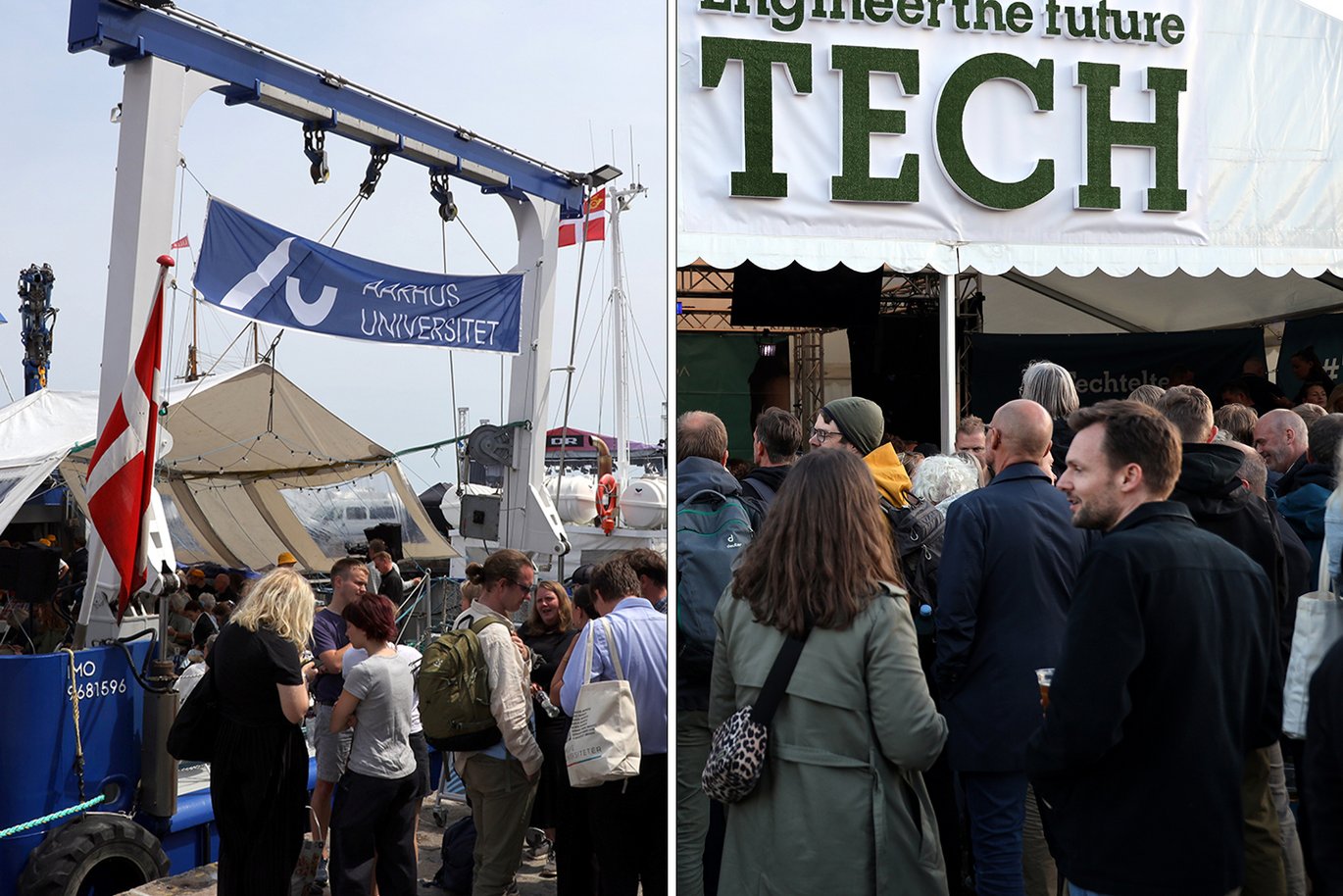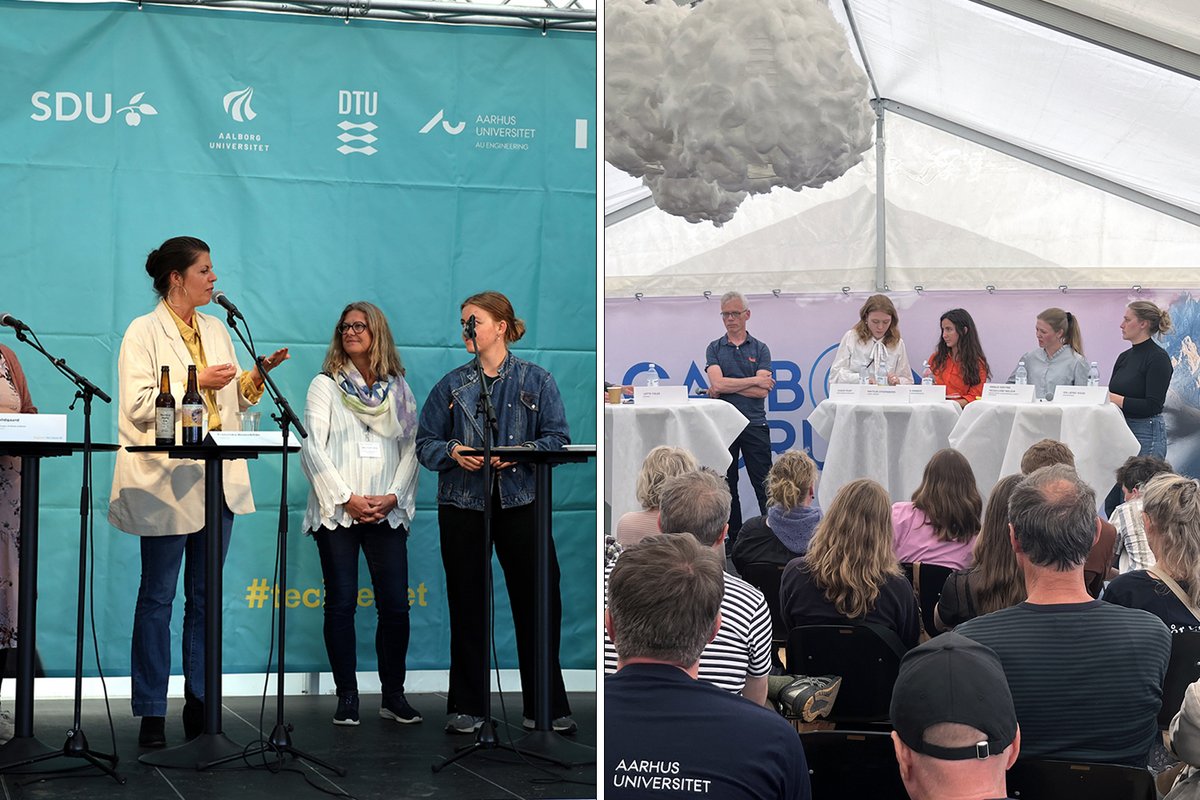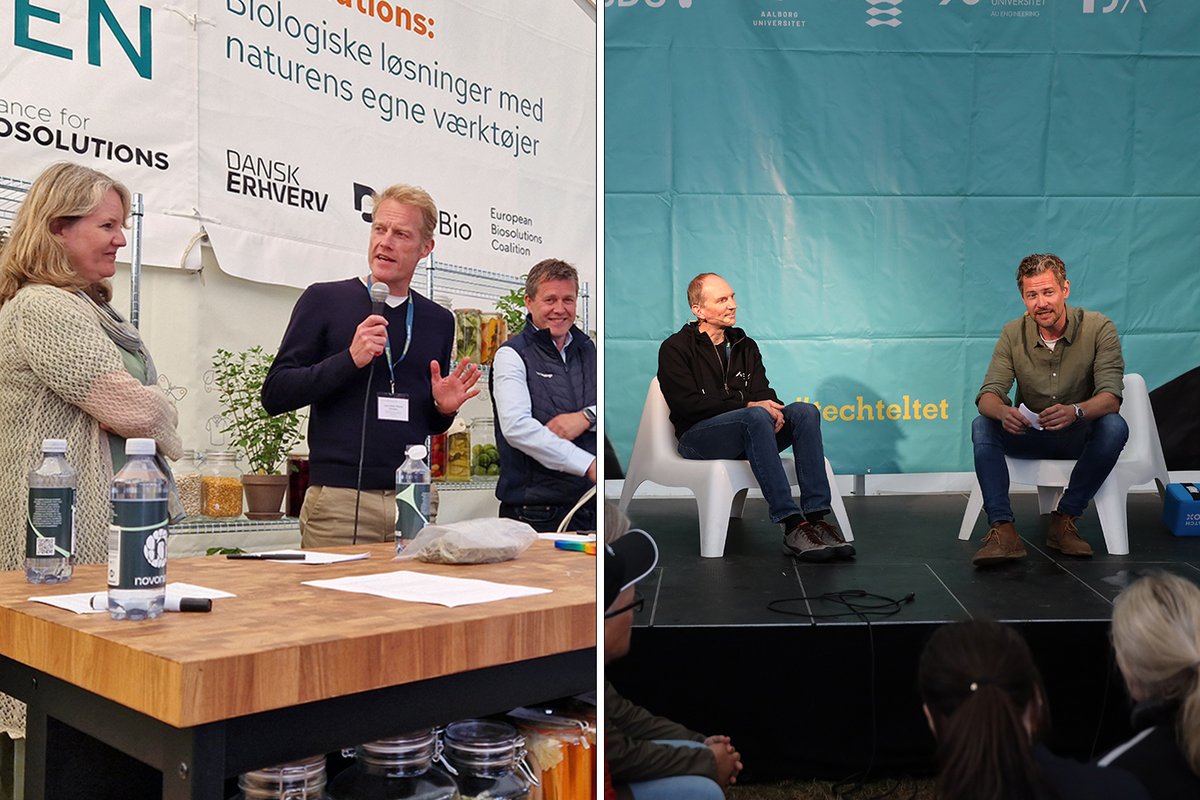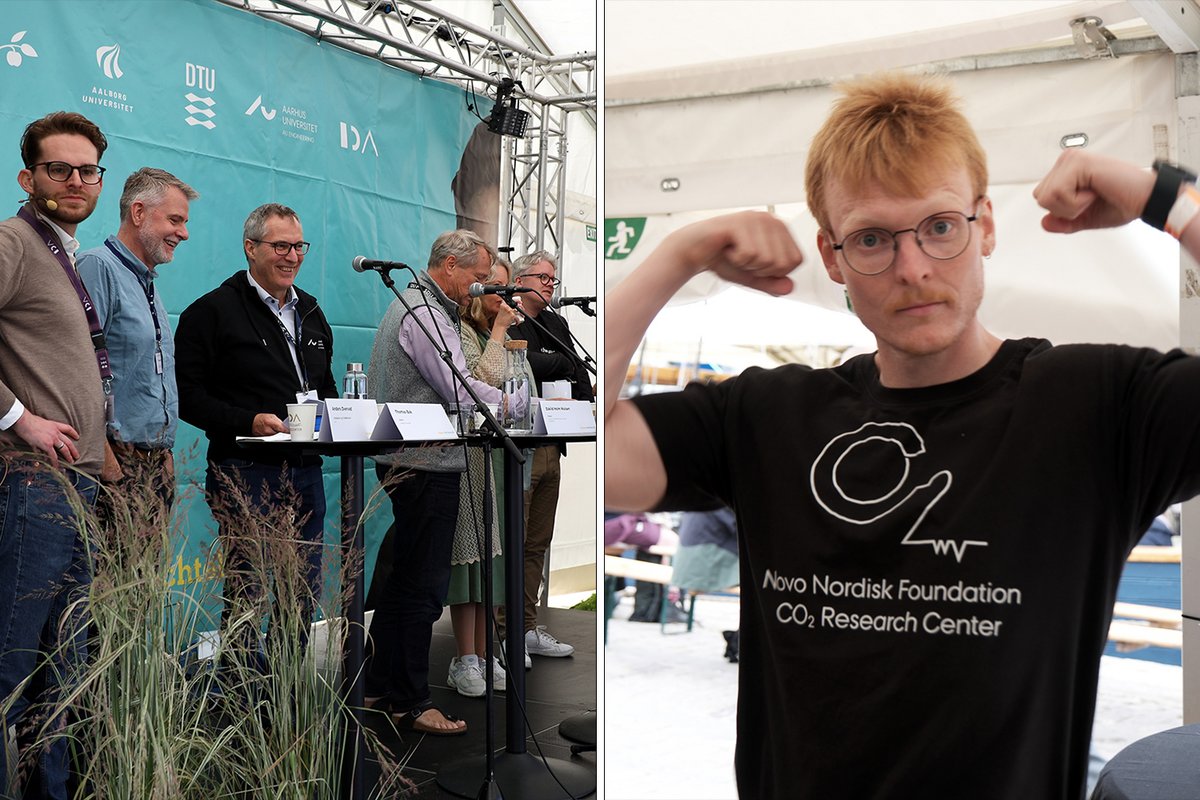Aftermath of Folkemødet, the political festival of Denmark
Three days of panel discussions, political events and democratic dialogue on the Island of Bornholm is over. Here are some of the highlights from the event.

Thanks to everyone who visited us at Denmark’s Political Festival, Folkemødet; three days of politics, events, discussions and close dialogue between the around 60.000 visiting citizens, businesses, NGO's, IGO's, politicians and business representatives.
Aarhus University hosted and co-hosted several debates and events at our venues: the research vessel Aurora, the engineering tent “Techteltet”, and the CarbonForum-tent.
“The festival is an important venue for showcasing our research and future technologies to decision-makers, businesses, future partners and the general public and I am very positive about the large turnout and the curiosity and interest for the events hosted by us and the rest of Aarhus University. I look forward to next year,” says Eskild Holm Nielsen, dean of the Faculty of Technical Sciences.
Highlights from the festival:
Professor Steffen Petersen hosted an open discussion on how we might change the way we build towards a more regenerative approach – giving more back to nature, climate and the environment than we take. The discussion underscored planetary limits, sustainability and politics and the initiative, the Aarhus Centre for Regenerative Building.
Professor Jette Feveile Young spoke out on cultivated meat in a political panel discussion on food culture, plantbased foods and cell-based production technologies:
"Here in Denmark, we’re rather good at producing meat and agricultural products, but no matter how good we are at traditional meat production, change is mandatory given the climate and biodiversity crisis. Cultivated meat can be an effective contribution to an overall circular production, and Denmark has all the right prerequisites to be a pioneering country for this technology,” she says.
On Saturday, Professor Preben Kidmose highlighted his ear-eeg technology in a well-attended talk with journalist Jesper Bruun:
”It was great to experience this much public interest on our talk about wearables and ear-eeg technology and its possible impact on early detection, diagnosis, prevention and treatment of neurodegenerative diseases such as Alzheimer's and Parkinson's,” Kidmose said after the talk.
Our PhD student Amalie Kirstine Hessellund Nielsen participated in a panel discussion on our society in 2040. What technologies will help shape a sustainable society in sixteen years from now? Amalie Kirstine cautioned, that technology might not be able to solve all problems even in a future circular economy:
“When we stop being dependent on fossil raw materials we have to find other places to source the carbon, which we depend on in so many aspects of our lives today and in the future. Point source collection and direct air capture for instance. But technology is not the entire answer to this problem. We will need to change our behavoir when it comes to consumption,” she added.
Carbon in food production and land use was also in focus when Professor Lars Ottosen talked about creating proteins without the need for farmland in a discussion about food shortage, biodiversity and climate crisis and a future with even more people to feed but less land available to food production:
“With CO2 extracted from the atmosphere and renewably sourced electricity we can make hydrogen, and with the help of microorganisms, yeast and nitrogen we can turn it into proteins. There’s a string of opportunities to refine this resource to develop food without ever using agricultural land. This technology, which is based on nature's own microorganisms, has huge perspectives within the aspects of environmental, biodiversity and climate crisis," Lars Ottosen said.
And at the festival’s ‘University Beer Battle’, where Aarhus University battled the DTU and University of Copenhagen on best fermentation techniques, our Associate Professor Bo Spange Sørensen won first prize with his beer, brewed on old bread from local bakeries.
“Brewing is about much more than beer. At Aarhus University, the brewing process is used as an example of an advanced biotechnological process, which can be varied in many ways both with ingredients and process parameters. The brewing process, both theoretically and practically, is included in the teaching of food technology. We really like the beer ourselves, and we look forward to battling the other universities again next year in this friendly competition,” he says.
Folkemødet took place from June 13-15 in the town of Allinge on Bornholm.
Thanks to everyone participating.
Contact
Jesper Bruun
Journalist
Mail: Bruun@au.dk
Tel.: +4542404140



